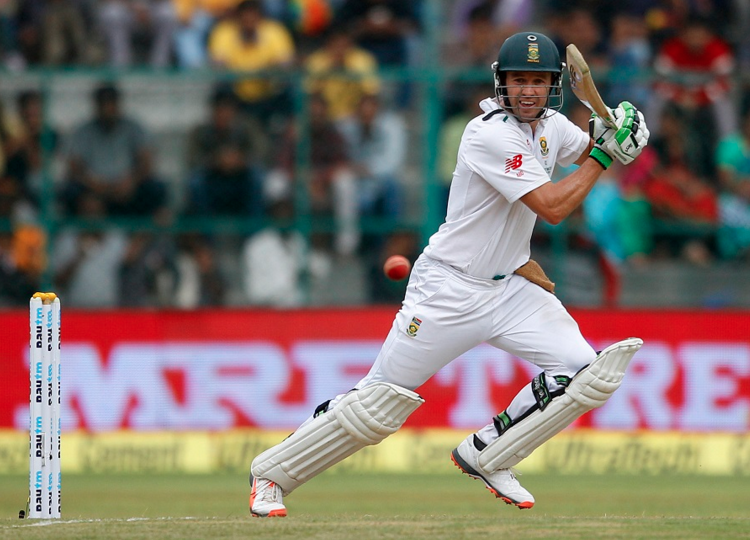The decision to reinstate AB de Villiers at wicketkeeper highlights the Proteas’ desperation and lack of progress.
Post the 2011 World Cup, Mickey Arthur offered his unequivocal view on the De Villiers-wicketkeeping debate. ‘I was always against his move to wicketkeeper,’ the former Proteas coach told SA Cricket magazine.
‘I can see why it might make sense to some, as it allows you an extra batter or bowler in the team. But the fact of the matter is that AB has a chronic back problem, and standing at wicketkeeper is only going to make it worse. Continuing to play him in that position will eventually detract from his dynamic ability with the bat.’
Four years on, and it is still a point of debate. Cricket South Africa recently announced that De Villiers will keep wicket in the first two Tests of the upcoming series against England. The Proteas intend to bolster their starting lineup with seven batsmen after a woeful performance in India.
Four years on, and the brains trust is still willing to burden South Africa’s best player with a responsibility that threatens to exacerbate an existing ailment. Four years on, and they are still searching for a long-term answer to the wicketkeeping question.
De Villiers’s tenure behind the stumps was supposed to be temporary, at least as far as Test cricket was concerned. He was asked to fill in for Mark Boucher on the 2012 tour to England after South Africa’s most prolific gloveman sustained a career-ending eye injury. It was always hoped that another player would eventually emerge to succeed Boucher and thus allow De Villiers to focus on his primary role as a batsman.
Unfortunately, the process of identifying a long-term successor is still ongoing. In fact, South Africa have played 30 Tests since that 2012 series in England commenced. De Villiers kept wicket for 18 consecutive Tests and for as many as seven series before Quinton de Kock eventually received an opportunity against Sri Lanka in July 2014.
An injury to De Kock in December last year stalled the youngster’s run with the Test side. De Villiers kept wicket in the final two Tests against West Indies. De Kock resumed the responsibility for the first Test against Bangladesh, but was replaced by Dane Vilas in the second. Vilas was then backed for the role in the four-game rubber in India.
All three players are now fit and available, but only one has been selected in the Proteas’ 13-man squad for the first two Tests against England. The backing of De Villiers, the non-specialist, is a statement in itself, one which doesn’t reflect well on the state of the team or the authorities’ plan for the future.
The Proteas are desperate. Poor batting contributed to a 3-0 series loss in India, and they are taking no chances going into a significant clash with England. South Africa have to draw this series at the very least to retain their No 1 ranking in Test cricket.
Of course, this could be used as motivation to select De Villiers as a wicketkeeper-batsmen in the next Test series against New Zealand, and for the following epic in Australia. But it can’t continue indefinitely. Sooner or later, the selectors need to bite the bullet and back a wicketkeeper for the future.
One also wonders how the current decision will compromise the batting order. Ideally, the Proteas need their best batsmen, Hashim Amla and De Villiers, at No 3 and 4, even more so given the recent struggles of their openers and Faf du Plessis.
But can De Villiers keep wicket and bat at No 4? Few will doubt that he can, at least for the coming series. On a longer timeline, though, he is going to break down. And when that happens, many will ask why more faith wasn’t invested in De Kock or Vilas.







